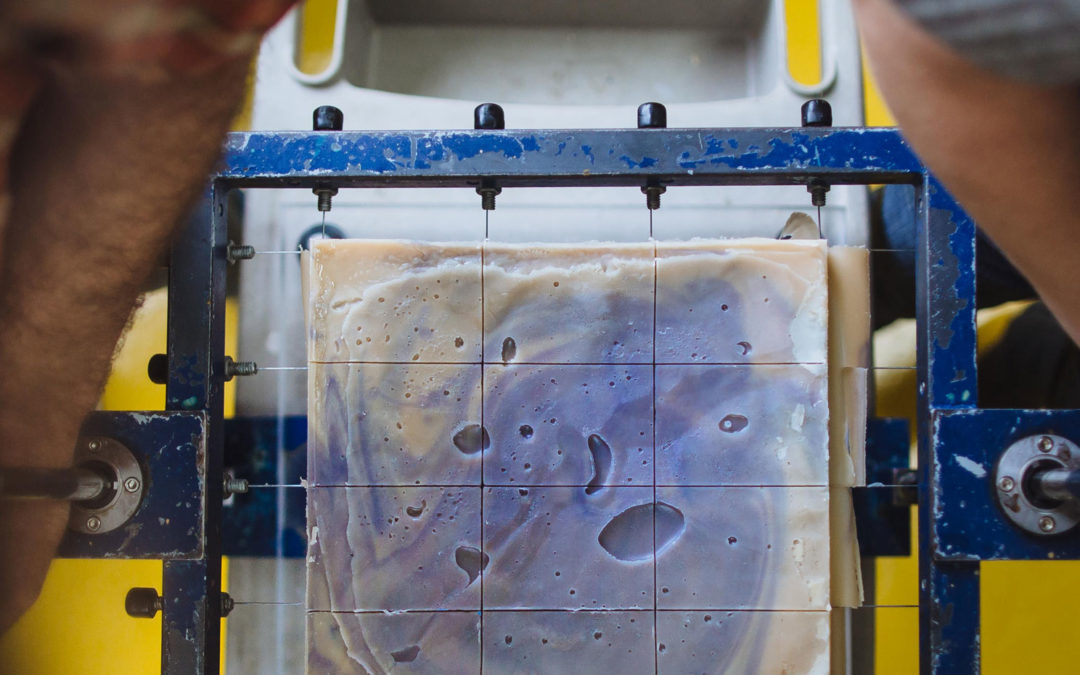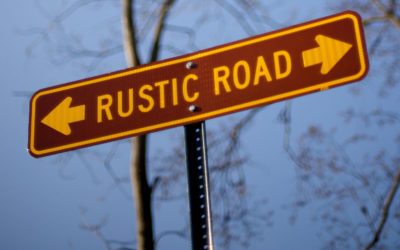This piece was written by Lisa Frank, founder of the Rettlers project. “Rettlers vision is to inform a hospitality culture that reflects the interests, values and lifestyle behind each host and each traveler. Collectively, these connections createa network of inspiration, wisdom, and dreams that will drive social cohesion and change amougst urban and rural people.” Lisa wrote this piece after visiting and learning more about Viroqua for her project. Learn more about Rettlers here.

Bottling up at B&E’s Trees. Photo by Lisa Frank
There is a small community, tucked away in the “driftless” region of Wisconsin, that is combating the widely known tastes of corn syrup and Folgers commonly associated with rural America. Vernon County and its county seat, Viroqua, and the driftless region in general are known for hosting the highest concentration of organic farms per capita, the headquarters of Organic Valley (the largest organic farmer-owned cooperative in the world), and for many other small scale, sustainable food businesses. Together, they are paving the way in the local food and wellness movement that stretches far beyond the rural confines of the Kickapoo Valley watershed.
A common misconception of city folk is the assumed lack of culture and dwindling prospects of rural communities. These prejudices have fueled urban/rural culture wars in which rural people are often denigrated and maligned. Pushing back against this narrative is important work if we wish to bridge these divides, and it is worth noting that not all rural places fit the mold of decline and not all rural people are unenlightened. Vernon County is one such place that does not fit neatly into pervasive stories we are told. In fact, over the past twenty five years, the town of Viroqua and its surrounding area has instead seen a rural revival as natives and newcomers are pouring in to cultivate a renewed local culture that works for a greater good. “This certainly isn’t your typical small town, the valley here is part of an identity that drives the connection to the land its local flavors. It’s an identity that is at the heart of everyone who settles here,” says Alex Stoffregen, Kickapoo’s Lab, Sourcing and Education Coordinator.
The intimacy and proximity generated by the local food movement has helped shape a new local identity that expands beyond farming. There is a remarkable energy, focused on possibility rather than obstacles, that flows through the region. This can-do spirit fosters the desire to move beyond the mere revival of “what once was”, and towards a community that’s healthy, sustainable and a strong influence on the greater economy.
One such innovator is Sue Noble, Executive Director of the Vernon Economic Development Association, who embodies that spirit and saw an opportunity to generate growth for local food entrepreneurs. In 2009, after NCR announced that, after 40 years, it would be closing its Viroqua plant, leaving more than 80 workers and a large facility behind, Noble and her board of directors raised the funds to purchase the building and develop it into a shared home for small scale entrepreneurs and food processors from the area.
The closure of NCR, a company that manufactured supplies for ATM’s and retail POS machines, served as an awakening for those living in the area as it signaled an economic downturn and a loss of identity. The sense of connectedness to NCR that was shared amongst people living in this community created a void that would need to be filled. Noble’s vision paired well with her values of community vitality and the development of the local economy, providing a means to incubate and scale locally owned and operated organic food and wellness businesses, all which would retain the economic security and sense of community rooted in NCR’s plant.
At the time of the announced closure, VEDA wasn’t looking to invest in something of this scale, but Noble couldn’t bear the thought of seeing the massive vacant space as anything but a hub for fellow community members to pursue their missions. Her organization purchased the property from NCR and quickly set off on turning the space over to what she hoped would grow into a network of people dedicated to local food-production. Writing out her passions, Noble cranked out grant after grant to secure adequate funding to build-out a viable home for driftless flavors. In a brief meeting with Noble, she shared that the building itself is in the hands of each tenant occupying it, as their monthly dues have restored and continue to renew the space beyond what could have been: nothing more than a dusty vacant warehouse.

Food Enterprise Center with Kickapoo Coffee’s Solar Array. Photo Courtesy of Kickapoo Coffee
Today, Viroqua’s Food Enterprise Center houses 20 food-manufacturing businesses, including the widely known Kickapoo Coffee Roasters, Wisco Pop, B&E’s Trees (barrel-aged maple syrup producers), Fizzeology Fermented Foods, and Lusa Organics, which makes handmade body care products for adults, babies and children. The breadth of businesses found under this one roof is remarkable, and each tenant shares access to classrooms, resources, cold and dry storage, production, and distribution spaces. Walking through the resurrected space takes you on an origin journey as you get to see a variety of entrepreneurial enterprises and locally made products during its second phase of life.
Kickapoo Coffee Roasters, one of only a handful of Midwestern-based third wave coffee roasters, sits tucked away in the far corner of the Food Enterprise Centerwith an 80-panel solar system outside its doors that powers most of its daily grind. As with other tenants, Kickapoo engages the public in their work by hosting coffee cuppings and tours. “This has been an invaluable hub to scale the production of our coffee as we grow and expand our shops,” said TJ Semanchin a Co-Owner of the company. A town like Viroqua has affordability that allows them to grow, plus the community keeps their Viroqua-based café at the center of small town life. Thanks to the Center’s distributing capabilities, one may taste the buzz coming from the driftless right in their home or their other café locations, such as their most recent out of Bayfield, WI, yet nothing beats a cup brewed right from the roast.

Tasting day at Kickapoo Coffee. Photo by Lisa Frank
Having grown up on a local farm and picking up the work trade from her father, Bree Breckel found herself settling down with another native Eric Weninger here in Viroqua. There was a call back to the land, a call to home, that led the two to begin their entrepreneurial pursuit in aging maple syrup, tapped right out of the regions Driftless from roughly 120 acres worth of maple trees. It’s no secret that the Driftless boasts in beauty that is reflective of simpler times and greener pastures. For, Breckel and Weniger, it’s the tie to the land and the ways in which their work preserves it that is at the soul of their business. For them, life is simpler and greener as the Enterprise Center enables the practices necessary for a genuine connection between the land and its people.

B&E Trees Bourbon Barrel Aged Maple Syrup. Photo by Lisa Frank
Yet another inspirational force is Rachel and Pete Wolf of LüSa organics. LüSa stands for Lupine and Sage, their two children who are at the heart of the brand’s sustainably made products. LuSa’s ingredients reflect the tastes and smells that are grown right from their family farm. Balms and soaps infused with organic herbs such as lavender, calendula, and mint carry an essence of connection to the land. Rachel said. “Our products are made to be simple, wholesome and clean.” They are made with integrity, and without compromising your health and values. Rachel and her family shared that settling in Viroqua has been the best decision they ever made as it provides a community that supports the efforts to share the abundance of gifts sourced locally from the area. She says, “It’s truly a magical place with a community that has been instrumental in our work.”

Rachel and Pete Wolf of Lusa Organics. Photo courtesy of Ray + Kelly Photography
The spirit of the Food Enterprise Center reflects a broader movement, in which many locals have turned to leaders such as Noble and the influence of Organic Valley to support a different kind of rural economy and a hope to allow progressive food concepts to fuel the vitality of the community.
It is worth noting that within the Food Enterprise Center is a smaller community in and of itself: one of creative people, working shoulder to shoulder as neighbors. When sharing a common space, you share resources, ideas and a vision which can lead to remarkable things. Most astonishing are the ways in which the dreams of a small but intrepid group of people are expanding outside the area and beyond their local community.

Soap Making Day at LuSa Organics. Ray + Kelly Photography
As Wendell Berry, once said, “There are no sacred and unsacred places; there are only sacred and desecrated places. My belief is that our life and the world in it are conditional gifts.” Here, in a small patch of rolling hills and valleys, a small group of committed people are taking advantage of their local resources —natural, built, and energetic— to carry a sense of stewardship with their pursuits. They are leading a movement that’s inspiring others to live with intention and purpose —a purpose that inspires change, freedom and an abundance of opportunity. Their missions are varied, but their impact is the same. As each product makes its way outside the walls of The Food Enterprise Center, we all become part of the community that is at the heart of Viroqua’s identity.






